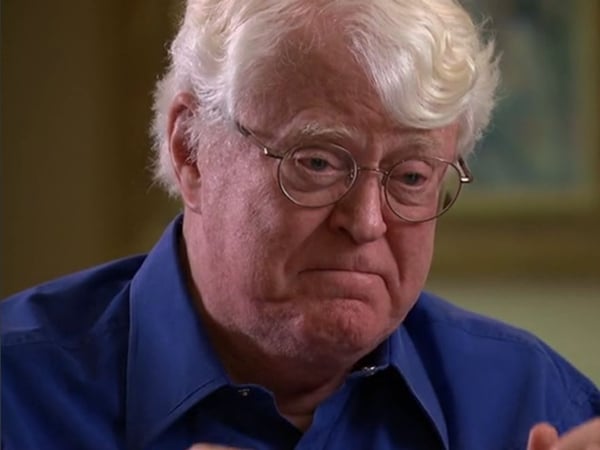
William Koch is a lesser known member of the infamous Koch clan of chemicals moguls, though he still ranks as number 392 on Forbes‘s list of the world’s billionaires, with an estimated net worth of $4 billion. This weekend, he got some press of his own, however, with an interview on ABC’s “20/20” in which he admitted to being a “pigeon, a sucker…whatever you want to call it” for having spent millions of dollars—yes, millions of dollars—on fake wine. Perhaps you thought that the Koch Brothers were soulless wannabe aristocrats? Think again. At one point during the segment, Koch actually breaks into tears over his passion for rare wine.
Titled “To Catch a Fake,” the “20/20” piece reported on the impending sentencing of Rudy Kurniawan, an Indonesian wine merchant who was based in Bel-Air, California. Known for his lavish lifestyle—he hung with (totally random) celebs like Jackie Chan, Lionel Richie, and Will Smith—Kurniawan earned tens of millions of dollars fleecing wealthy buyers, and the report details how he manufactured the puportedly rare, decades- and centuries-old wines in the “counterfeit kitchen” of his suburban home by soaking labels off bottles, printing up new ones that sported much-coveted names like Chateau Petrus Pomerol, and then filling them with combinations of cheap wine from other bottles.
Koch’s fake wine woes—and the catalyst for his suspicions about Kurniawan bottles—were chronicled in Benjamin Wallace’s fascinating 2008 book The Billionaire’s Vinegar which told the story of “The Mystery of the World’s Most Expensive Bottle of Wine.” In 1985, at an auction in Christie’s London, the Forbes family was the buyer of a bottle of what was purportedly a 1787 Chateau Lafitte (now spelled Lafite) found in a cellar in France with an elaborate story concocted and sold alongside it that the bottle had been owned by Thomas Jefferson. The Forbes family paid $156,000 for the bottle after a heated bidding war with top wine collectors including Marvin Shanken, the man behind Wine Spectator magazine. In 1988, Koch bought four bottles with the same back story. When doubts and rumors about the wines being fake hit a crescendo several years later, it was Koch who doggedly pursued scientific analysis that ultimately showed they were created by a German forger. Koch had paid more than $100,000 per bottle. Those prices may seem exorbitant, but the global auction market for fine and vintage wines is enormous, and totaled $337 million in sales in 2013.
So, how much wine does one have to buy to be ripped off of literally millions of dollars? Koch says that he got stuck with between 400 to 500 fake bottles bought from Kurniawan and others. (A wine expert interviewed in the report refers to wine collectors as “bravado jackasses” with a “my bottle’s bigger than your bottle” complex.)
“I want someone to know, they sell me a fake, man, I’m coming after ’em no matter what the cost.”
Another lesson of the segment: Do not mess with a Koch brother (the narrator actually intones the line that Kurniawan “had a good thing going until he crossed paths with the wrong billionaire”). Koch estimates that he has spent $25 million on legal fees—far more than the $5 million he originally spent on the fake wine itself. Last year he won a judgment against one wine expert who sold him fakes, for $12 million. He even appeared on the cover of Wine Spectator when he was the subject of an article titled “The Crusade Against Counterfeits.” Taking on wine fakery has become his personal crusade: “I want someone to know, they sell me a fake, man, I’m coming after ’em no matter what the cost.”
Also of interest to art lovers: en route to the elaborate, tomb-like 12,000-bottle cellar in his Florida mansion, Ross gives us a brief glimpse of Koch’s art collection, noting that his living room contains “hundreds of millions of dollars worth of art,” while panning a wall with Monets, a Cezanne still life, and other blue-chip masterpieces.
As for that moment, the one where Koch loses it: It comes towards the end, when reporter Brian Ross notes that some might have difficulty sympathizing with a billionaire who spends six-figure sums on a single bottle of wine. Koch begins to answer, then is overcome with emotion. Ross, trying to remain empathetic intones, “You really care about this.” To which the now overwrought Koch, trying unsuccessfully to contain himself, says emphatically: “It’s about the art and the craftsmanship.”
Watch the full piece, below: